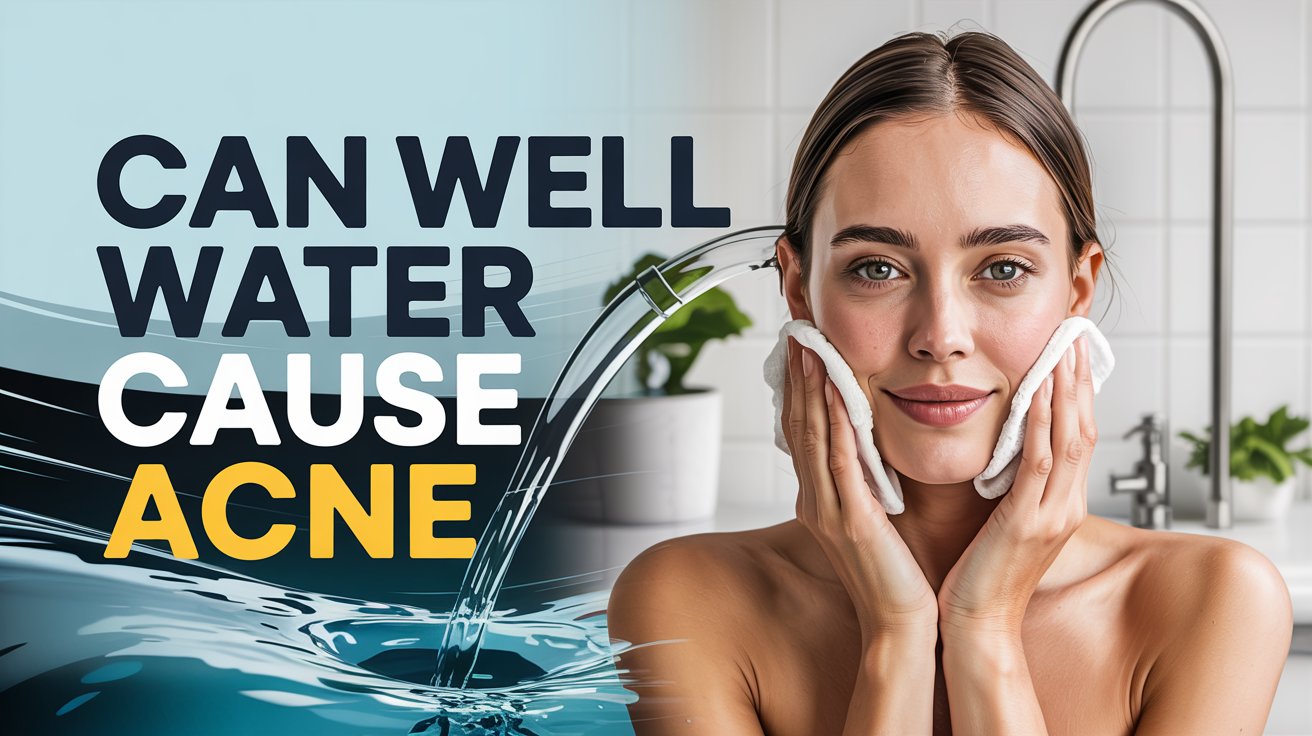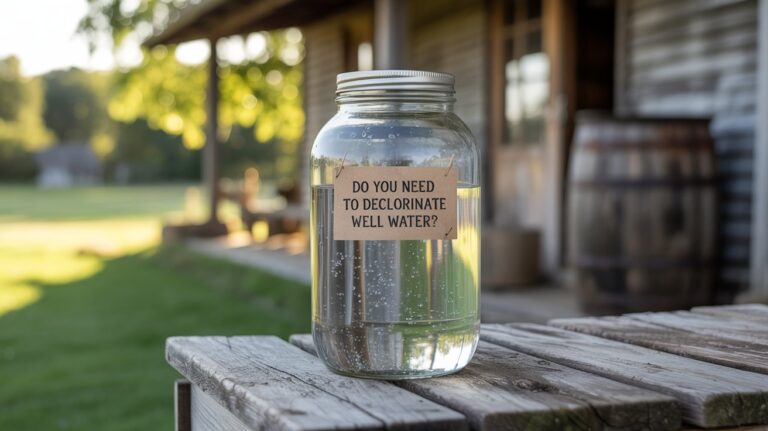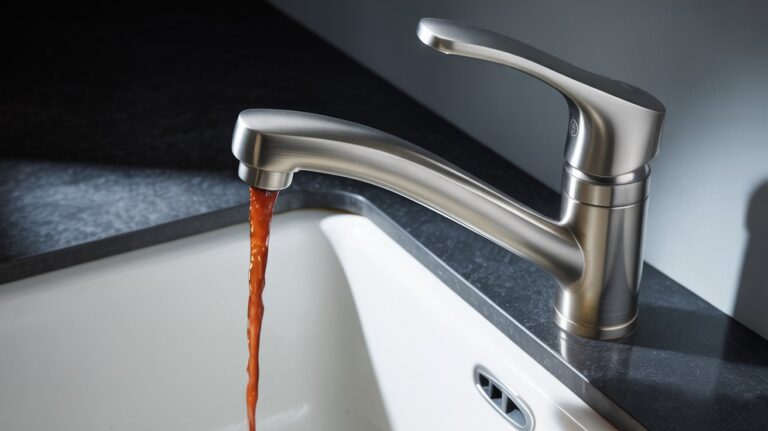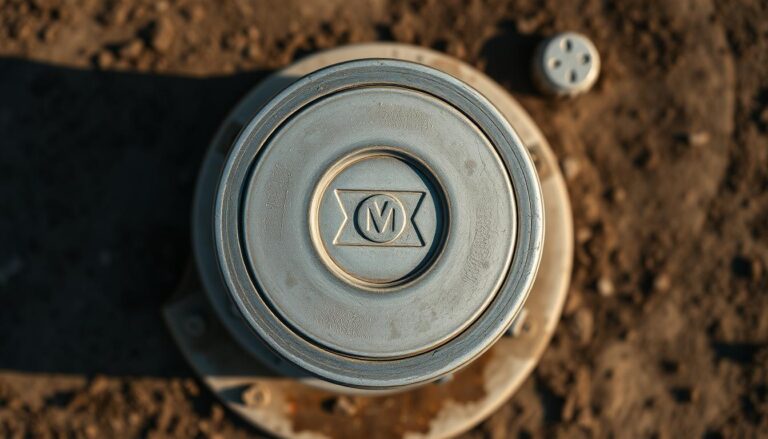Can Well Water Cause Acne
Have you ever wondered about the impact of the water you use every day? Specifically, can well water be a trigger for acne? It’s a question worth pondering if you’re living off the grid or in a rural area where well water is your primary source. Understanding how well water affects your skin can significantly influence your skincare routine and overall skin health.

Understanding Well Water
What is Well Water?
Well water is a type of groundwater sourced from wells drilled into underground aquifers. There’s something unique about this natural resource—it comes directly from the earth, often without the chemical treatments tap water usually undergoes. However, this also means that well water can contain varied minerals and contaminants depending on your location.
Composition of Well Water
The composition of well water can greatly differ due to the natural setting of the aquifer it comes from. Typical elements found in well water include calcium, magnesium, iron, and manganese. While these minerals are natural, their presence in excess amounts can pose questions about their impact on skin health, particularly acne.
How Well Water Affects Your Skin
Hard Water and Your Skin
Well water is often hard water, filled with high levels of calcium and magnesium. Hard water can leave a residue on your skin, creating a film that clogs pores and leads to breakouts. If you’ve noticed a stubborn layer of soap on your skin or hair after a shower, hard water might be at play.
pH Levels and Skin Balance
The pH level of water can determine how it interacts with your skin. Ideally, your skin’s surface should be slightly acidic. If your well water is too alkaline, it can disrupt this balance, leading to dryness, irritation, and, potentially, acne flare-ups. Consider testing your water’s pH to better understand its compatibility with your skin.
The Role of Iron and Manganese
These metals can stain your porcelain but may also affect your skin in less visible ways. Iron and manganese can contribute to clogged pores, which can result in acne. The metals can also increase oxidative stress on the skin, triggering inflammatory skin conditions.
Identifying Water-Related Acne
Symptoms of Water-Related Acne
If you’re trying to determine whether your acne is related to well water, it’s essential to differentiate the symptoms. Water-related acne often appears as non-inflammatory comedones or small red pimples without a central core of pus. These breakouts can be persistent and unresponsive to typical treatments aimed at bacteria or hormonal causes.
Differentiating Acne Causes
Acne can arise from various sources—hormonal imbalances, genetic factors, diet, or skincare products. If you’ve tweaked these aspects with no positive outcomes, consider testing whether water quality could be your acne’s root cause. You might notice a pattern if flare-ups occur after exposing your skin to well water or improve after a stay in a different location using treated water.
Solutions to Combat Well Water Acne
Water Softeners and Filtration Systems
The installation of a water softener will help remove the excess minerals like calcium and magnesium from the well water, directly tackling the hard water issue. Additionally, employing a comprehensive filtration system can eliminate impurities that could contribute to skin problems. Ensure regular maintenance to ensure their efficacy.
pH Balancing Practices
To counteract alkaline water, you can use skin products that help restore your skin’s natural pH. Incorporate toners or mists with slightly acidic properties to rebalance your skin after washing. This can help mitigate irritation and reduce the occurrence of acne due to pH imbalance.
Topical Treatments and Skincare Regimens
Create a skincare regimen that counters well water’s drying and clogging effects. Including non-comedogenic products and hydrators can help maintain moisture without causing further blockages. Utilize aqueous cream or lotions designed to prevent water loss from your skin.

Preventive Measures and Lifestyle Changes
Regular Water Testing
Regular testing of your well water is crucial not only for your skin but also for your overall health. Testing kits are available that allow you to identify mineral concentrations and potential harmful contaminants. Address any anomalies found during testing with appropriate treatments and filters.
Nutritional Considerations
Diet can also play a role in how your body responds to external aggressors like hard water. Ensure your diet supports healthy skin by including sufficient vitamins and minerals. Omega-3 fatty acids, antioxidants, and vitamin E can strengthen skin barriers and combat oxidative stress.
Managing Stress and Skincare
Stress can exacerbate skin conditions, so finding ways to relax and manage stress effectively is critical. Be kind to yourself and create a calming skincare routine as a form of self-care. Gently cleanse, treat, and moisturize your skin, and remember that improvements take time.
The Benefits of Well Water
Natural Minerals and Their Positive Effects
While we focus on the potential downsides, it’s also important to note that well water can be beneficial for skin due to its natural minerals, which can improve skin hydration and elasticity. The key is maintaining a balance and ensuring these minerals do not reach levels that may trigger acne or irritate the skin.
Sustainable and Eco-Friendly Living
Using well water is part of a sustainable living approach, lessening reliance on processed water systems. Consider how this aligns with environmentally conscious choices and how investing in personalized solutions for you and your skin can both support your values and address concerns about acne.
Conclusion
The interaction between well water and acne is complex but not insurmountable. Understanding its potential effects can empower you to create a life where your water source and skin health co-exist harmoniously. With informed choices and proactive measures, you can continue to enjoy the benefits of using well water while minimizing its adverse impact on your skin. Be patient with yourself and your skin as you adapt to changes that prioritize your well-being.







